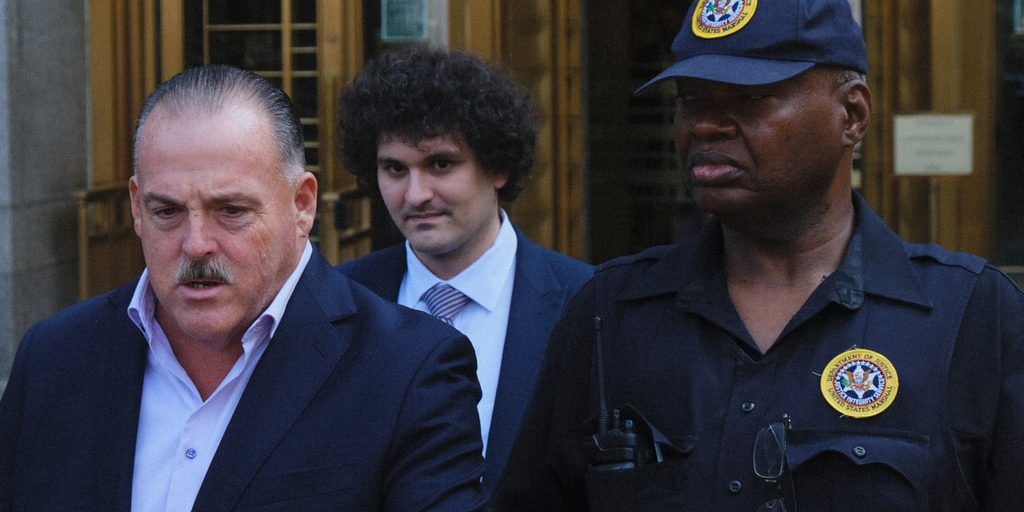A defendant facing criminal charges has the right to testify during their trial, but many don’t. Now, several weeks into Sam Bankman-Fried’s case, the FTX founder still hasn’t decided whether he’ll take the stand.
Bankman-Fried has remained silent so far, as he defends himself against seven fraud and conspiracy charges in federal court. Meanwhile, the jury has heard at length from FTX insiders, who’ve detailed Bankman-Fried’s state of mind throughout the arc of his exchange.
“It almost feels necessary to hear directly from him in order to counteract this mountain of evidence,” Rachel Maimin, a partner at Lowenstein Sandler LLP, told Decrypt. “Most [legal] decisions are made by lawyers,” but testifying is not one of them.
While attorneys may caution against it, the decision to testify ultimately lies with the defendant. Bankman-Fried may have a “human urge” to speak following his inner circle, Maimin noted. However, she said, “There’s no question that, if he were to testify, it would be brutal.”
The government could pepper Bankman-Fried with questions for hours during cross-examination, hurting his hopes with the jury if things go poorly, she said. Additionally, prosecutors could submit more evidence that they wouldn’t be able to otherwise.
If Bankman-Fried takes the stand, court rules allow the DOJ to submit evidence that casts doubt on his credibility. Normally the prosecutors would have to limit their evidence to exhibits that directly relate to Bankman-Fried’s defense, Maimin explained.
Whether or not Bankman-Fried testifies could be viewed generally as a tossup, according to William & Mary Law School Professor Jefferey Bellin. In a law journal article titled “The Silence Penalty,” he wrote that “only about half of criminal defendants take the witness stand.”
If he does start speaking, Bankman-Fried would have to be extremely careful with his words, considering the breadth of public statements he’s made as FTX’s public face, Brian Newman, an attorney at the law firm Dykema Gossett, told Decrypt.
“Your average white collar defendant does not have [essentially] hundreds of hours of them on tape speaking,” Newman said. “It’s almost like walking a tightrope—that he could testify without contradicting himself. It seems almost impossible to me.”
In fact, less than two weeks after Bankman-Fried stepped down and FTX filed for bankruptcy, the Paul Weiss law firm announced that it had stopped representing him because of his “incessant and disruptive tweeting” according to a report by Bloomberg Law.
The one-time wunderkinds’ world view often boils down to questions of numbers and probability, according to Michael Lewis’ recent book, “Going Infinite.” This notion was reinforced by testimony from former Alameda CEO Caroline Ellison, who gave an example at trial.
“He would be happy to flip a coin, if it came up tails and the world was destroyed,” Ellison said, “As long as if it came up heads, the world would be more than twice as good.”
In light of Bankman-Fried’s apparent aptitude for rolling the dice, there’s a notable chance that the former crypto mogul decides to “let it rip” even though it’s “just a massive risk,” Daniel C. Silva, a former assistant U.S. attorney and shareholder at Buchalter told Decrypt.
Silva said there’s a possibility that Bankman-Fried feels as if a prison sentence is coming, regardless of his testimony, and the downside—which could include extra prison time if he’s caught lying under oath, for example—is outweighed by the shot of winning a juror over.
“The only chance of not getting convicted at this point, based on all the evidence, is if he just has a magical few hours or days on the stand,” Silva said. “He has to cast a spell, or he has to somehow make the jury ignore all the evidence that has built up against him.”
Bankman-Fried’s attorneys have already flagged that his lack of regular access to his prescription medication for attention deficit hyper-activity disorder (ADHD) medication has been a factor.
“As we approach […] the critical decision of whether Mr. Bankman-Fried will testify,” they wrote, “The defense has a growing concern that because of Mr. Bankman-Fried’s lack of access to Adderall, he has not been able to concentrate at the level he ordinarily would.”
Prosecutors are expected to rest their case against Bankman-Fried this week, turning it over to the defense to present their side—if they so choose—on Thursday. His attorney’s haven’t signaled whether they will present a case, but per Fox Business, Bankman-Fried recieved his first dose of Adderall at court last Thursday, on the 12th day of the trial.
Stay on top of crypto news, get daily updates in your inbox.
Credit: Source link




